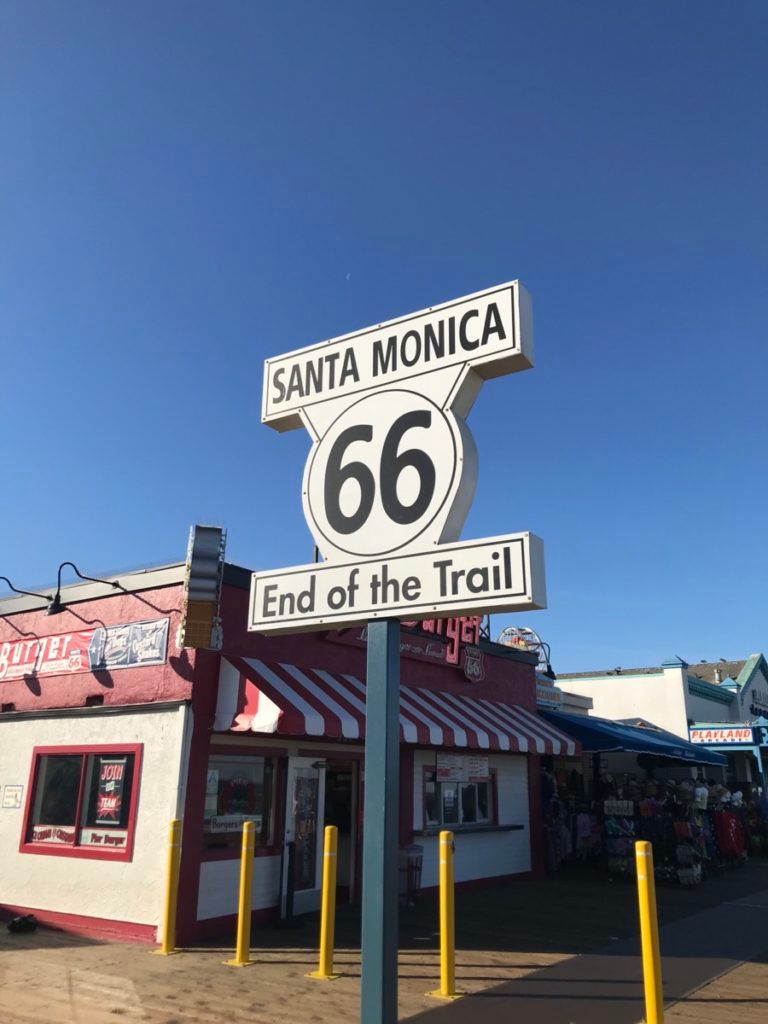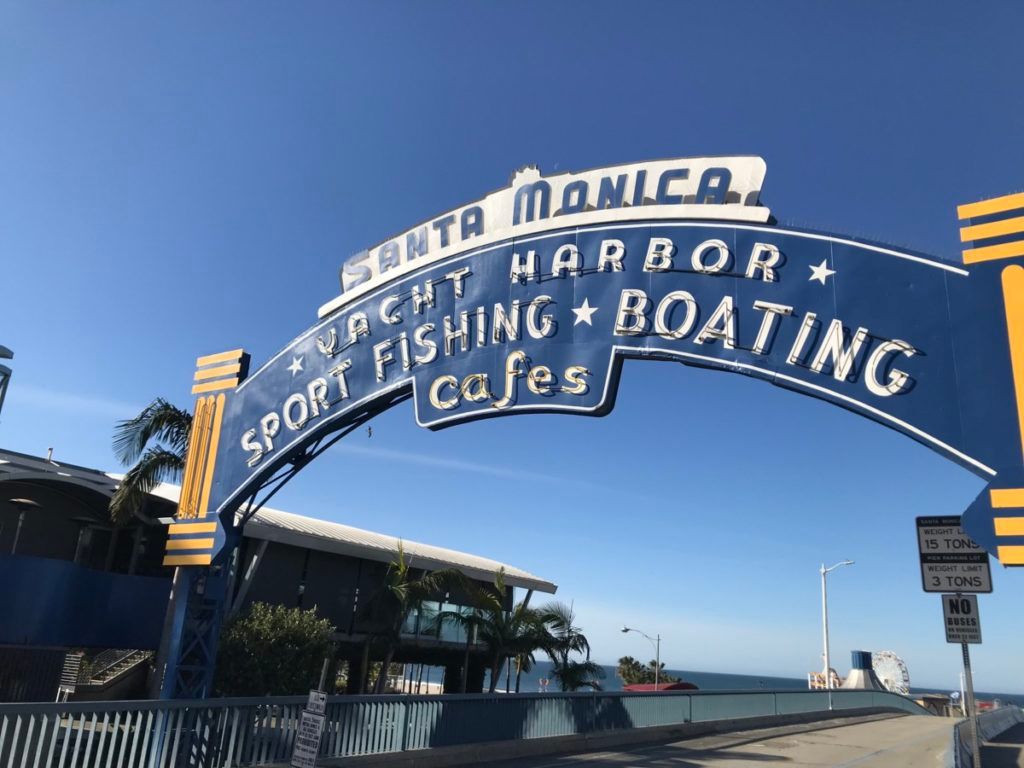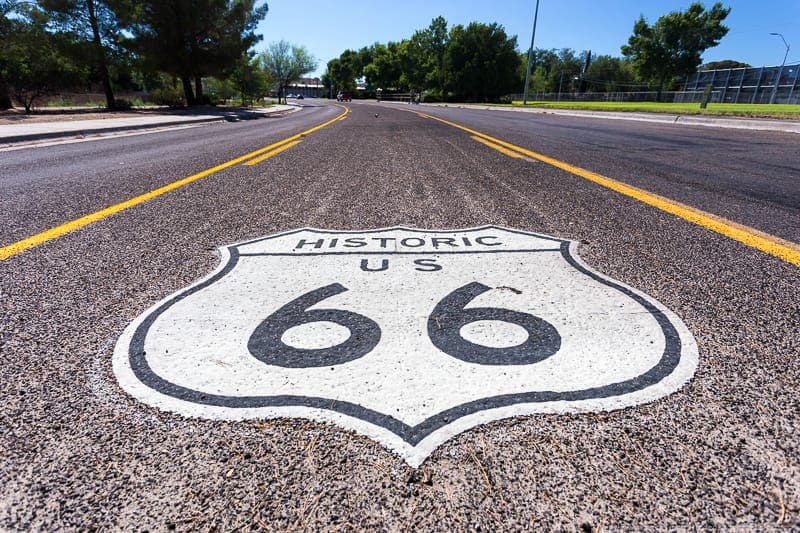You Can't See Their Faces on Route 66
The Blurry Allure of the Open Road

The Blurry Allure of the Open Road
Years ago, I was eating lunch with one of my oldest friends, Tom, at Kiwanis Club. The Travelogue Chairman was passing out packets to all the members. We took ours and looked at the cheap brochure that described the 2000-2001 “Travel and Adventure Series,” a series of six shows featuring speakers who come to our local auditorium and show us a video of a particular geographical area while offering live narration.
Most of the programs looked pretty lame: The British Isles, Ontario, BFE.
But there was the fourth show, “Route 66: The Path West.”
I saw that and looked up at Tom, pointing to it with my eyebrows raised. Tom immediately nodded.
“Wanna check it out?” I asked.
“Heck yeah, Route 66? I’m not really into travelogues, but hey, you can’t pass that up.”
“Maybe we’ll grab a few beers after work, then stumble over to it,” I said.
“Yeah, that’s worth a buzz.”
Those Misty Images
I’ll give 10-to-1 odds that many guys our age—then, mid-thirties; now, mid-fifties—would’ve had that same reaction: Route 66? Oh yeah!
But why? Neither Tom nor I have ever traveled Route 66. Its easternmost point is three hours from our hometown in Michigan. It was largely replaced by interstates by the time Tom and I were five years old. To the best of my recollection, we had never discussed Route 66.
But our reactions were the same: Route 66 is very, very cool. Both reactions were based on nothing tangible whatsoever. And that’s odd.
I doubt I can explain this phenomenon fully, but it’s like the words “Route 66” explode in a guy’s soul. In my case, they magically invoke an array of misty images, probably bits of pictures I’ve picked up over the years. When I read the words “Route 66,” I saw no “concrete” images, like of Cadillac Ranch or the Grand Canyon; the images were vague. Carl Jung might say these misty images are pops of the collective unconscious (the combined memory of society as a whole) in my individual psyche.
So what were those misty images? I saw a gray road with brown dust and occasional brown shrubbery on both sides. A long lonely road that seems like it could go on forever, with diners and bars plopped here and there along it. Diners with jukeboxes where you can buy a beer. Bars where you do nothing but drink and play a jukebox. And hot weather.
Perhaps the mistiest images are the people on Route 66. People are always misty. It’s easy to hate or love someone who’s not there. It’s the person in your presence that is always a let-down—hard to hate, even harder to love.
My image is Beatnik; not Oakie, though their ghosts are in the culverts, watching. Young men and kicks, not work. Fun, not food. Jazz, not silence. Voluntary, not driven.
Johnny from The Wild One, but without the violence. We’re dealing with rebels who take to the road because anything and anyone can go on the road. It’s funny; the Oakies were rebels, too, albeit involuntary ones, brave souls who refused to let home ties keep them tied to barren land. Whether Oakie or Brando, the lesson is the same: The road lays down its welcoming mat for anyone who’s willing to leave it all behind. (Which may be the reason I hate mobile homes; it’s like climbing those phony rocks with three harnesses around you or hiring someone to decorate your Christmas tree—you’re missing the best part. It’s better to stay home and watch TV; at least you’re not gutting something’s essence.)
The people on my misty Route 66 have no discernible faces. But they’re all accepting faces. That’s the crucial part. There’s no judging on Route 66; there’s just looking: At the stretching landscape, at mountains, at the sultry hick waitress in a diner or the old man on a street-side bench, at the cup of coffee or the longneck beer.
A Special Type of Freedom
I guess my misty images of Route 66 add up to freedom. That’s the attraction. I realize this isn’t a stunning or novel assertion: The image of the road has always been synonymous with freedom. Pundits and historians tell us Americans love their cars because they love freedom.
But I’m talking about a special type of freedom on Route 66. It’s not a freedom to get drunk and get laid. My misty image of Route 66 offers licentious possibilities—those are the kicks, I suppose. But that’s not the point of Route 66. The licentiousness is the frosting on the asphalt cake, so to speak, an extra possibility around the Route 66 corner, but never a possibility that’s pursued. It’s something you fall into, and you only fall into something by letting go.
And it’s the letting go that is the source of the Route 66 freedom that causes the words “Route 66” to explode in my soul. Whatever happens on Route 66 happens. Storm or sun; alone or hitched; drunk or sober. It doesn’t matter because nothing’s being pursued—except, maybe, the Santa Monica pier. And it’s when all criteria are shoved aside that true freedom is found. If you have no preferences, all things are equally pleasing. That’s the charm of Route 66.

Cue Kerouac
If I have any concrete image of Route 66, it’s the image implanted by Jack Kerouac’s On the Road. One scene is particularly instructive on the freedom of Route 66. Sal and Dean (the Beat adventurers) pick up an “incredibly filthy” hitchhiker at Dean’s insistence. The man is covered with scabs and is reading a muddy paperback he found in a ditch. They sit close to him and dig him the whole time, genuinely getting a kick out of talking to him, but without any hint of malice. They really like the guy and are totally absorbed by him. After dropping him off, Dean excitedly says about picking up the hitchhiker: “I told you it was kicks. Everybody’s kicks, man!” His attitude resembles St. Francis’ affection for lepers and Mother Theresa’s love for the diseased downtrodden in Calcutta. As all the saints realize, as Sal and Dean experience, even the most filthy and diseased people are God’s creatures and therefore lovable—if only a person has a sufficient dose of detachment to accept them.
And that’s what the freedom of Route 66 connotes: Detachment, from the care and worries of conventional life, from our own ambitions and preferences. With the result that we come to see all things—things created by God—as enjoyable.
I suspect that’s the misty lure of Route 66.



